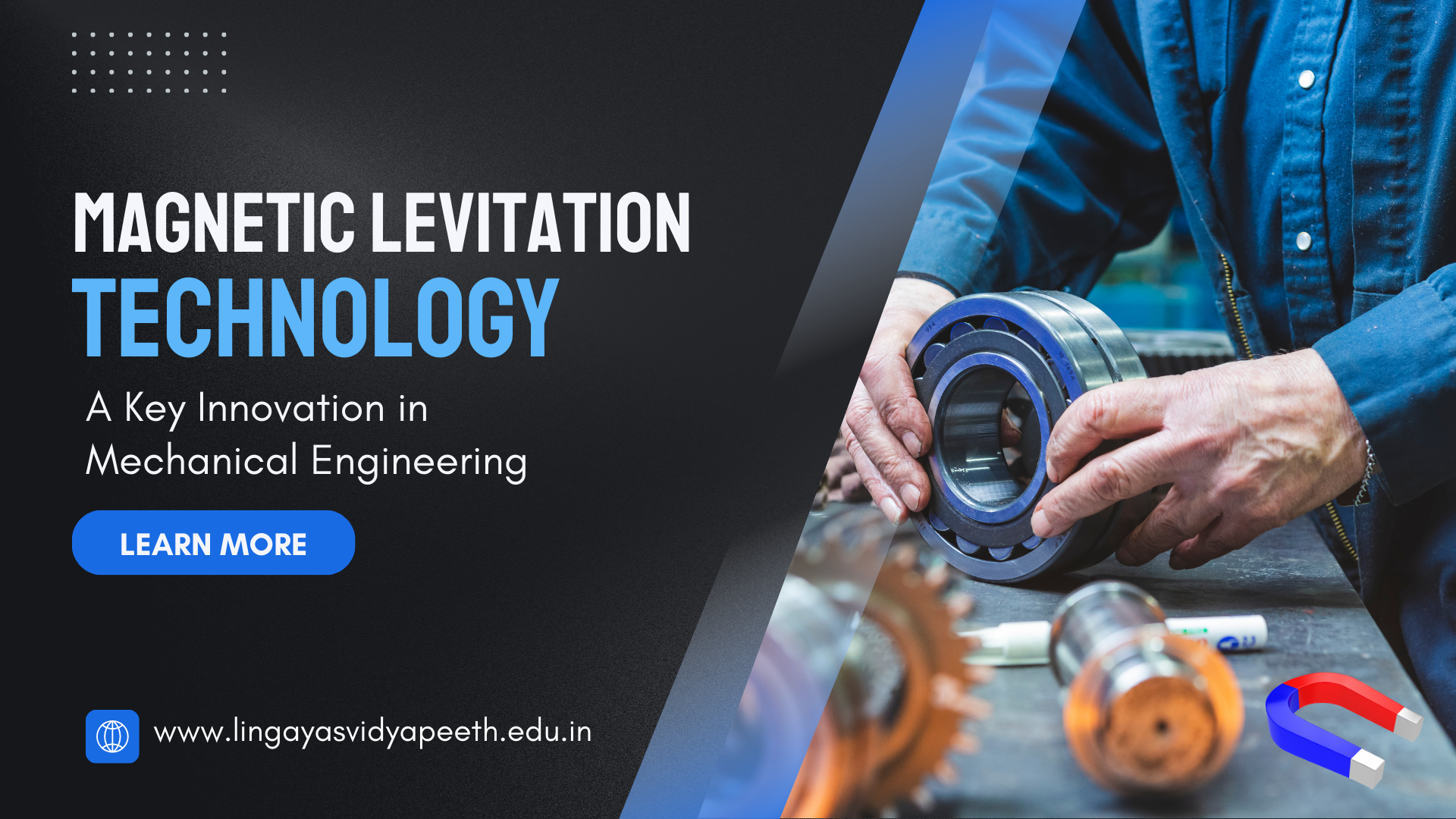Home » Why Magnetic Levitation Technology Matters in Modern Mechanical Engineering?

Magnetic levitation (maglev) technology has gained significant traction in recent decades due to its potential to revolutionize transportation and other industries. This innovative approach, which uses magnetic fields to suspend and propel objects, has profound implications for mechanical engineering. In this blog post, we’ll explore the principles of maglev technology, its applications in mechanical engineering, and the challenges and future prospects of this exciting field.
Maglev technology is based on the principles of magnetism to achieve levitation and propulsion. There are two main methods of maglev:
Air-Powered Vehicles: A New Era in Sustainable Transportation
Despite its promising applications, maglev technology faces several challenges:
However, ongoing research and development efforts are addressing these challenges. As technology advances and costs decrease, maglev is expected to become a more viable and widespread solution in various industries.
In conclusion, magnetic levitation is a remarkable technological achievement that has the potential to revolutionize transportation, manufacturing, and other fields. By understanding the principles of magnetic levitation and exploring its applications, mechanical engineers can contribute to the development of new and exciting technologies that will shape the future.
Are you interested in pursuing an BTech in Mechanical Engineering from one of the leading universities in Delhi NCR? Look no further, Lingaya’s Vidyapeeth is the perfect choice for you. We offer a cutting-edge curriculum, expert faculty, modern facilities and industry collaborations, empowering you to become a future leader in the field of mechanical and automobile engineering.
From
Mr. R K Deb
Assistant Professor
Department of Mechanical Engineering
Lingaya’s Vidyapeeth
Best Mechanical Engineering Colleges in Delhi NCR
RECENT POSTS
CATEGORIES
TAGS
Agriculture Agriculture future AI Architecture Architecture design artificial intelligence BA Psychology BTech CSE BTech Engineering Business management career Career-Specific Education career guide Career Opportunities career option career scope Civil engineering commerce and management Computer Science Computer science engineering Data science degree education Engineering Engineering students English Literature english program Exam tips Fashion Design Fashion design course Higher Education Journalism journalism and mass communication law Law career Machine Learning MA Psychology Master degree mathematics MBA Mechanical Engineering Pharmacy Psychology Research and Development students
University Address: Nachauli, Jasana Road, Faridabad, Haryana
Toll Free: 1800-120-4613
Mobile : 8447744303 | 8447744304 | 8447744306 | 8447744309
Address: C-72, Second Floor, Shivalik, Near Malviya Nagar,
Above HDFC Bank, New Delhi 110017
Ph.No. - 011-46570515 / 45138169 / 41755703 / +91-7303152412
Jagmani Kutir, Ground Floor, Road No-1, Rajeev Nagar,
Near Darbar Marriage Hall, Patna-800024, Bihar
Contact No: 9818352069/ 8130120095
Mail: kanhaiya@lingayasvidyapeeth.edu.in
Copyrights © 1998 - 2025 Lingaya's Vidyapeeth (Deemed To Be University). All rights reserved.
It is important to note that the following email IDs and domains are fraudulent and do not belong to our university.
LV only conducts physical/online verification of any document related to examination on the following email id: